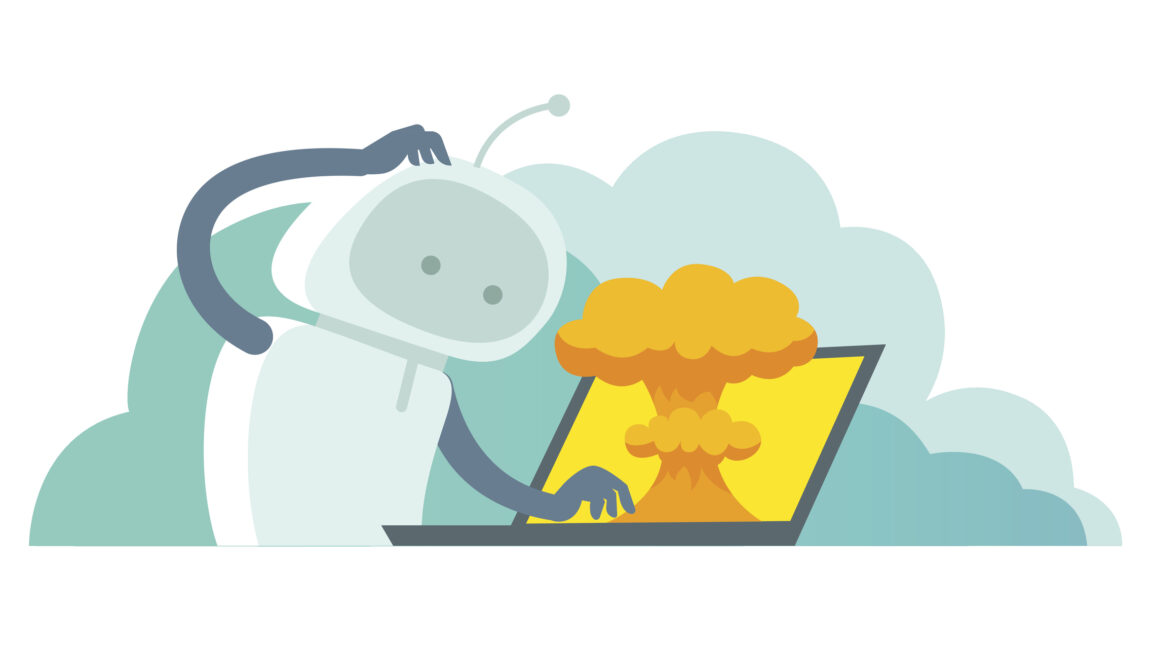After rumors swirled that TikTok owner ByteDance had lost tens of millions after an intern sabotaged its AI models, ByteDance issued a statement this weekend hoping to silence all the social media chatter in China.
In a social media post translated and reviewed by Ars, ByteDance clarified "facts" about "interns destroying large model training" and confirmed that one intern was fired in August.
According to ByteDance, the intern had held a position in the company's commercial technology team but was fired for committing "serious disciplinary violations." Most notably, the intern allegedly "maliciously interfered with the model training tasks" for a ByteDance research project, ByteDance said.
None of the intern's sabotage impacted ByteDance's commercial projects or online businesses, ByteDance said, and none of ByteDance's large models were affected.
Online rumors suggested that more than 8,000 graphical processing units were involved in the sabotage and that ByteDance lost "tens of millions of dollars" due to the intern's interference, but these claims were "seriously exaggerated," ByteDance said.
The tech company also accused the intern of adding misleading information to his social media profile, seemingly posturing that his work was connected to ByteDance's AI Lab rather than its commercial technology team. In the statement, ByteDance confirmed that the intern's university was notified of what happened, as were industry associations, presumably to prevent the intern from misleading others.
ByteDance's statement this weekend didn't seem to silence all the rumors online, though.
One commenter on ByteDance's social media post disputed the distinction between the AI Lab and the commercial technology team, claiming that "the commercialization team he is in was previously under the AI Lab. In the past two years, the team's recruitment was written as AI Lab. He joined the team as an intern in 2021, and it might be the most advanced AI Lab."
Another commenter suggested that ByteDance was downplaying the damage. That commenter claimed that the intern used "malicious code" to "deliberately sabotage the training for several months" and suggested that the intern could face steeper penalties if ByteDance wanted to claim damages.
"The team’s months of research were in vain," the commenter claimed, but although "it did not directly affect the product line," the "loss of computing power alone amounts to several million if not tens of millions, not to mention the waste of time, energy, and wages of the entire research team."
Ars could not immediately reach ByteDance for comment.
ByteDance behind on AI
ByteDance started 2024 by confronting the hard truth that it had fallen behind rivals in the AI race, Bloomberg reported. At an all-staff meeting, ByteDance co-founder and CEO Liang Rubo told workers "to adopt a sense of crisis" after the company failed to be "sensitive enough to external changes" and wasted years ignoring OpenAI's GPT developments.
It will be a struggle for ByteDance to catch up, the CEO anticipated. While ByteDance's Chinese rival Baidu claims to have a chatbot as good as OpenAI's ChatGPT, attracting more than 100 million users since August, ByteDance's Doubao chatbot was largely considered a flop last year, Bloomberg reported.
To help ByteDance compete with rivals, the company secured a $10.8 billion corporate loan to expand its facilities, sources told Bloomberg in September.
A huge chunk of that expansion will boost ByteDance's e-commerce goals, sources told Bloomberg. But seemingly another chunk will also support "the company’s other major foray into generative AI and the development of large language models for ChatGPT-style apps," which "is a capital-intensive undertaking that demands billions of dollars of upfront investment."
But recruiting AI experts for that expansion may be challenging for ByteDance, which saw an "exodus" of top AI experts in May, as startups lure talent to attract investors seeking to prop up the next OpenAI, the South China Morning Post reported. ByteDance also competes for talent with top rivals Tencent and Alibaba, which have also been investing heavily in AI.
And seemingly any AI setback could disrupt ByteDance's ability to compete in the AI race globally, as tech giants like Meta, Apple, and Google seek to quickly leverage their user data to seize a competitive AI advantage. Just today, Mashable joked that social media has been "AI-pilled" as companies rush to release AI features changing how users interact with their apps and helping to advance research based on immediate popular use of AI products.
On TikTok, ByteDance's most popular app, TikTok has launched generative AI video effects and virtual assistants for creators, as well as a creative studio that automates some aspects of content creation. These are the types of features that tech giants expect will keep users coming back, potentially stoking greater interest in a wider range of AI products.
To keep the momentum going on TikTok and ByteDance's other apps, retaining AI talent will be crucial. But that may be extra-challenging for ByteDance amid intensifying regulatory scrutiny regarding alleged privacy and security concerns, mainly with TikTok. In 2020, ByteDance's former head of its AI Lab, Ma Wei-Ying, abruptly left soon after the US mulled its first TikTok ban, Reuters reported.
Perhaps the biggest current threat to ByteDance's AI dominance is the US's plan to block TikTok nationwide unless it is sold by January 19, 2025. TikTok is currently suing to block that US law while alleging that other Chinese e-commerce apps like Temu pose threats that the US government is overlooking.
Fortunately for ByteDance's AI ambitions, First Amendment scholars have forecast that the US government will face an "uphill battle" enforcing the ban. At the trial in September, TikTok lawyer Andrew Pincus warned a three-judge panel that banning TikTok would have "staggering" effects on "the speech of 170 million Americans."


